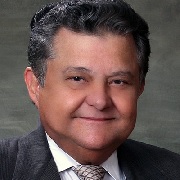| Recent history reveals the need for the adherence of all nations to a new international security framework. |
 Russia’s war of aggression against Ukraine and its intervention into that country’s internal affairs constitute serious breaches of international law.
Russia’s war of aggression against Ukraine and its intervention into that country’s internal affairs constitute serious breaches of international law.
The eloquent statement about aggression from Nuremberg
According to the International Military Tribunal at Nuremberg, “War is essentially an evil thing. Its consequences are not confined to the belligerent states alone but affect the whole world…
To initiate a war of aggression, therefore, is not only an international crime; it is the supreme international crime differing only from other war crimes in that it contains within itself the accumulated evil of the whole.”
The International Criminal Court, more and more relevant
The Rome Statute of the International Criminal Court states that the crime of aggression is one of the “most serious crimes of concern to the international community,” and provides that the crime falls within the jurisdiction of the International Criminal Court (ICC).
As of November 2019, 123 states are parties to the Statute of the Court. Four of these signatory states – the United States, Russia, Israel, and Sudan — have informed the United Nations Secretary-General that they no longer intend to abide by the laws of the Statute.
Those four nations therefore claim to have no legal obligations arising from their signature.
Starvation tactics violate the Geneva Convention of 1949
- Hits: 3014

 After every mass killing, voices come out of the woodwork with the same rhetoric, but very little is done to prevent the next one. The liberal politicians and the main media hoist the banner of gun control. Some conservative politicians and some in the alternative media fly the flag of psychological profiling. Religious leaders call for prayers. Others advocate for more metal detectors and/or armed guards in schools. I think they are missing the root causes of all this violence.
After every mass killing, voices come out of the woodwork with the same rhetoric, but very little is done to prevent the next one. The liberal politicians and the main media hoist the banner of gun control. Some conservative politicians and some in the alternative media fly the flag of psychological profiling. Religious leaders call for prayers. Others advocate for more metal detectors and/or armed guards in schools. I think they are missing the root causes of all this violence. Many adopted proposals warrant major changes to the EU’s founding treaties. This alone is a significant fruit of our advocacy work. At Democracy International, we have called for these institutional and democratic treaty reforms for over 10 years!
Many adopted proposals warrant major changes to the EU’s founding treaties. This alone is a significant fruit of our advocacy work. At Democracy International, we have called for these institutional and democratic treaty reforms for over 10 years!